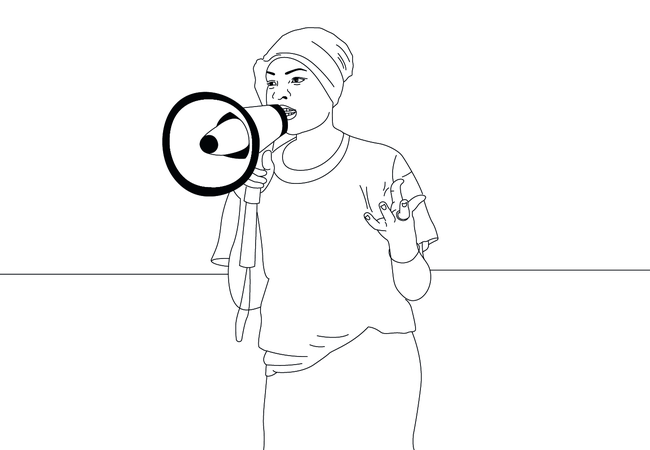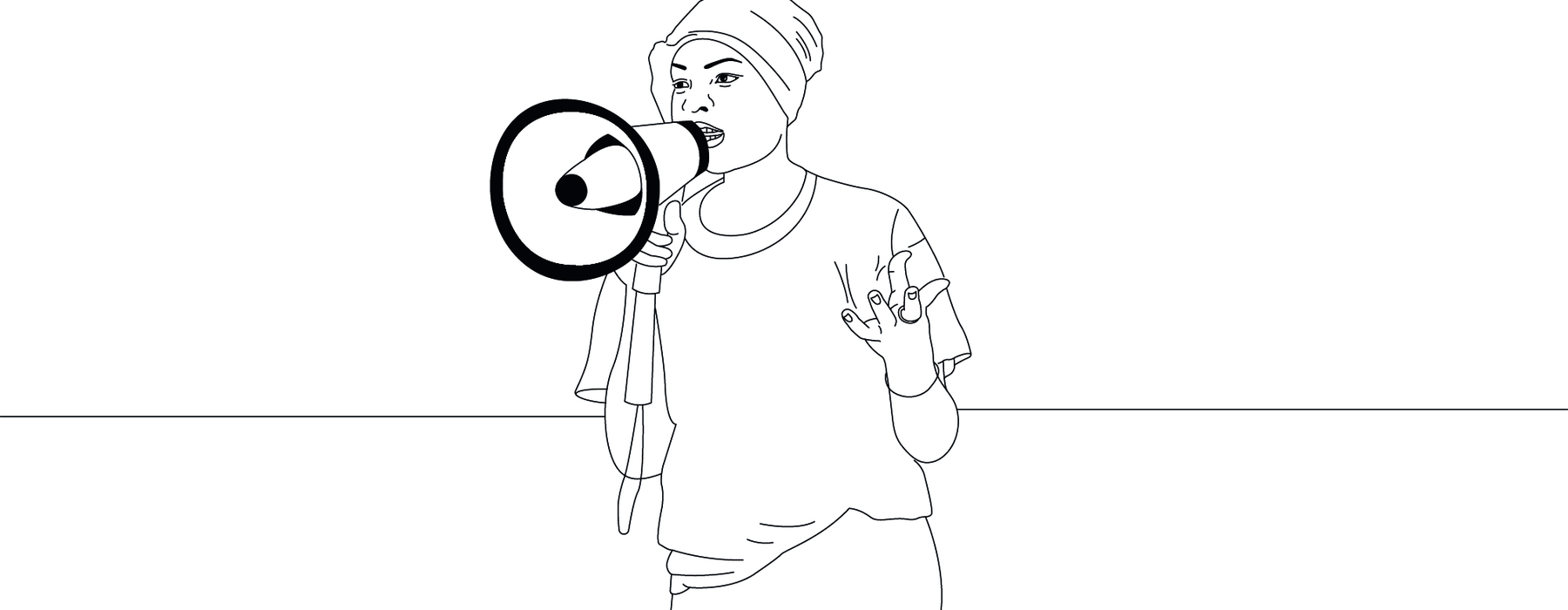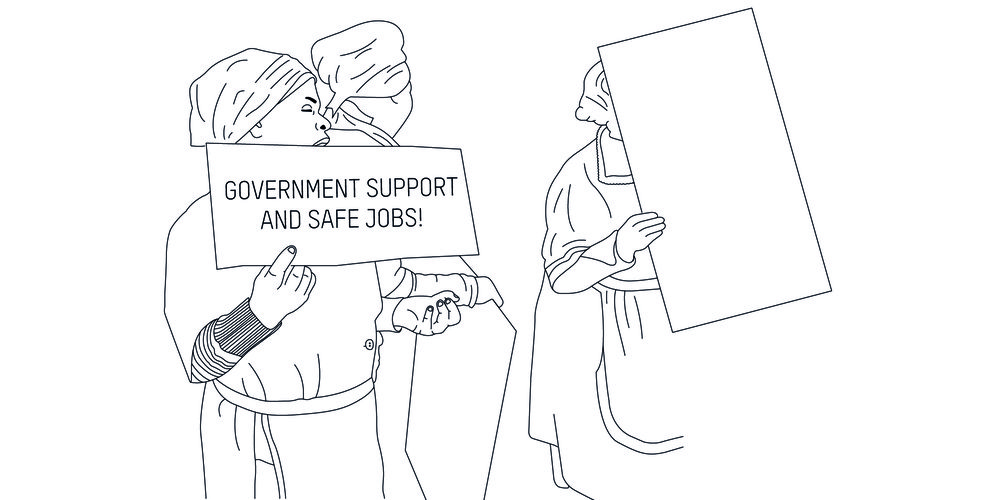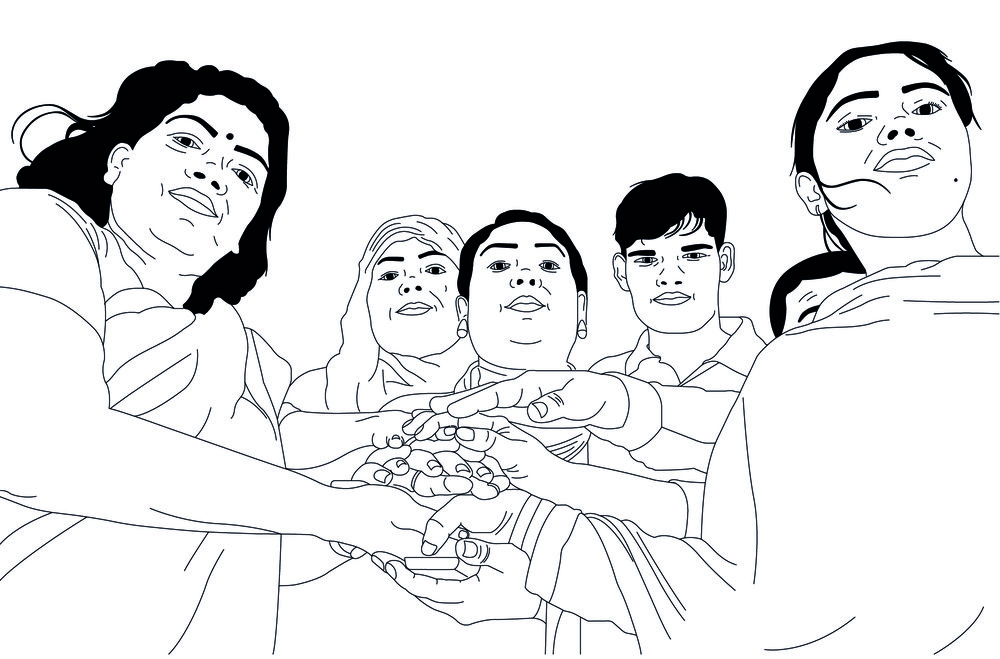Oxfam


How to make valuing all women's work a reality
We must redefine what 'work' means so all the work women do – paid and unpaid – can truly be valued. Here's how you can help.
An equal right to be invested in
“No one ever wrote down that this work is meant for women.”
Cynthia, 26, Zimbabwe. Cynthia goes to collect water for her family at 4.30am every day.
“I want to develop myself and escalate women’s work and the women’s unit and I hope our project will be positive, successful and accepted by society.”
Nesrine, part of a small women’s group that works in olive processing in the Gaza strip. Oxfam has supported Nesrine’s group with Gaza’s first olive slicing machine.
What is work?
Oxfam
Overworked and underpaid without the advantage of spare time to fight the systems keeping this so
Too many women have little control over their time, income, and safety. This has huge implications on women's lives. It also makes it impossible for them to fight the systems that steal their time, locking them into a vicious cycle of poverty.
What is informal work?
Currently...
More than 1.4 billion women lack any legal protection against domestic economic violence.
Around the world, 1 billion women lack legal protection from sexual violence.
An estimated 72% of unpaid care work in households globally is done by women.
“I want to work the hours which have better pay, so I can have my children with me and I can raise them well with good educations. I want my children to be close to their parents so they can have a better life.”
Lan*, 32, a migrant worker, while working in a factory in Dong Nai province, southern Vietnam, which produces shoes for global fashion brands.
Oxfam

What is unpaid care work?
“By the time childcare and travel costs are paid, it doesn’t leave much left so we don’t have much money as a family. I stay in work to help with bills and for the future not because it is financially rewarding. I know when both my children are older, it will help that I have stayed in work. Its just a struggle trying to make ends meet now.”
Emma*, part-time worker, UK. Emma* attended one of Oxfam's Inequality Hearing events in Manchester.
*Name changed
Why doesn't women's work count when we measure economic progress?
What is the value of the unpaid care work women do?
How has Covid-19 affected women?
Maruf Hasan/Oxfam
Shareholders before workers
Oxfam calculated that 8 powerful supermarkets increased dividends paid to shareholders from $10 billion in 2019 to $22.3 billion in 2020, yet ignored the plight of thousands of migrant workers caught in a Covid outbreak in Thailand supplying them with seafood.
Domestic workers in Lebanon
When Covid-19 hit Lebanon in 2020, Ethiopian migrant domestic workers – who were unprotected by local laws – were left without income, housing, or legal protection.
How is the climate crisis affecting women?
“Being a grandmother is nice when there is food in the house. When you plant and then the sun scorches your crop, you feel demoralised. Some crops are now coming up, but I’m not sure if we will get yields.”
Mirriam, farmer, Zimbabwe. The Meterogical Service Department has installed a weather warning system nearby with support from Oxfam. Mirriam gets weather alerts via text now.
How is conflict affecting women?
“My passion is hairdressing, I had a salon back home... Hair is my identity, it’s people’s identity, it’s important to look good. Because I have a bit of money I am able to buy items for my children. I just want to keep being a hairdresser and I want to grow. I want my children to be able to go to school and have a better life, I want to keep working in the salon so that everything is great.”
Faila, refugee hairdresser, 20, Northern Zambia. Falia and her family managed to escape violence in the Democratic Republic of Congo. Oxfam supported the group of hairdressers with salon equipment.
How you can help push for a fair economy for women
Change is happening
- The Bangladesh Domestic Workers’ Rights Network pushed for protections now improving 1.3 million+ domestic workers' lives.
- Youth Alive! Kenya, NOPE, and women in informal settlements in Kenya secured extra government budget for accessible water points and Early Childhood Development Education Centres.
- The Scottish Government says it will take ‘proper account’ of both formal and informal care.
- The Domestic Workers Rising Platform secured improved insurance at work for 1.1 million domestic workers in South Africa.
“That is the most enjoyable thing, empowering my community. Because if a community is not empowered, we will live in poverty forever.”
Jane, community women’s group founder, Kenya. Jane also runs a small business.
How you can help us redefine what we mean by work
“Truly seeing all women's work valued will mean things like increased government spending on social care, and company policies such as sick and parental leave. We also want to see a societal shift in how work is publicly viewed and talked about, recognising the effort and true value of all work.”
Valuing Women’s Work Collective, Oxfam GB
Oxfam
How will we know when it's working?
We’ll know it’s working when millions of women who contribute to their societies and economies through informal jobs and unpaid care work have their work recognised, measured, invested in and valued. And are ultimately out of poverty.
How are women fighting the system that is pushing them into poverty?
Choose an Oxfam Unwrapped gift that supports women's work
Being an unpaid carer, I felt that my caring story wasn't visible. Oxfam's help has enabled my voice, and the voices of carers' communities to be amplified to decision makers.”
Katy, carer, UK. Kay has cared for her husband since 2014.
Oxfam

“Together, let’s fund, campaign, and join the growing global movement and make a difference to the lives of 1.3 billion women workers worldwide. Let’s join together to profoundly change our global economy, for a future where everyone has the power and respect needed to overcome poverty and injustice for good.”
The Valuing Women's Work Collective, Oxfam GB